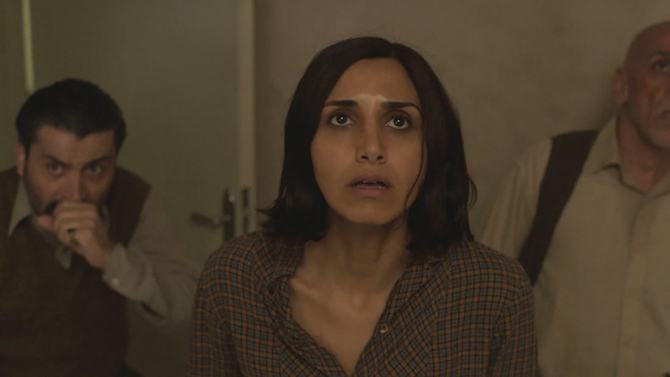
Babak Anvari's Iranian "horror" movie, notice the quotations, Under the Shadow premiered at Sundance this past January and then got quickly snatched up by, who else, Netflix.
Don't pay attention to the film's PG-13 rating which doesn't really do justice to the sheer terror emanating in every frame. This isn't your usual jump-scare, slasher fest. The scares come from the setting: 1988 Tehran. And boy, was it a dangerous place to live in, what with the country tying to find its religious voice, after a successful Islamic revolution, and getting rid of any of the rebels.
Putting the actual war aside, still happening mind you, but in a more low-key way, plenty of scenes in "Under the Shadow" still resonate today: A woman being persecuted for not wearing her veil, women having second-level treatment, and how, with all that baggage, they still find ways to be strong and independent figures in Iranian society.
The monster in the film is clearly government, but since this is a "horror" movie Anvari introduces us to the "Djinn," which is a sort of shadowy spirit that keeps popping up every once in a while to terrorize our main heroes: Shideh (Narges Rashid) and Dorsa (Avin Manshadi), a mother and daughter team left to fend for themselves in a war-torn neighborhood during the "War of the Cities."
Shideh, constantly hounded by phone calls from her -always absent- husband, keeps getting told to leave the building and go to safer ground with close relatives. Shideh refuses. Her stubbornness quite possibly having to do with trying to lay a claim to her independence in such an authoritarian state.
The tenants of the building have almost all left, but this mother and daughter team stay. The mother occupying herself with VHS copies of Jane Fonda workouts and the daughter quite possibly interacting with the Djinn. It's not like the tenants didn't warn them about the entity. Shideh thinks it's hogwash and with that state of mind Anvari convincingly blurs reality from fiction in the film until you just can't distinguish one or the other.
This Djinn brings a fresh new spin to the usual evil that lurks in horror movies. Based on Arabic folklore it is the inspiration for a supernatural force we have come to know here as a "Genie," but don't be fooled by that. You won't get a loud-mouth, sarcastic bottle man voiced by Robin WIlliams, oh no, this Djinn is nasty and doesn't speak a word. It is an entity that takes the shape of shadow and fog, but lurks beneath every frame of Anvari's movie.
This political firecracker has so much on its mind that it'd be quite dismissive to qualify it as just "horror," sure there are scenes that will make you jump for terror, but that terror has as much to do with the backdrop of a country in chaos as it has to do with the monster itself [B+]





